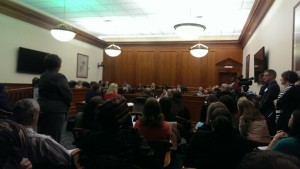How will the federal government make sure that teachers teach exactly what is prescribed in the Common Core? Easy, they will make their job depend on it and make sure that the schools of education comply or go out of business.
In 2009, Secretary of Education Arne Duncan said,
“I want to be able to track every child throughout their educational trajectory, so we know what they are doing. Secondly, I want to track children back to teachers, so we know the impact the teachers are having on those children. And third, I want to be able to track those students back to teacher, and teachers back to the schools of education, so we can understand which schools of education and which feeder programs are producing the teachers that are producing the students that had the most gain.”
Since 2009, the feds have exerted immense pressure upon states and provided incentives to make sure that they tie student performance to teacher evaluations. Student performance and “growth” will be measured by their assessments tied to Common Core. Last week Washington State lost their NCLB waiver because “because Washington did not meet federal demands to include student performance on statewide standardized tests in teacher evaluations.”
So it is no big surprise that today in Lansing House Education Committee chaired by Rep. Lisa Posthumus Lyons will be debating teacher evaluations (HB 5223, 5224.) Tracking the

student “back to the teacher” and tying it to teacher evaluations and schools education is Dunan’s dream. Doing his bidding insures that teachers across Michigan comply with the Common Core standards and insure conformity in every classroom.
Duncan and the US Department of Education are once again bribing states into to giving up their autonomy for federal money and waivers. Along with the NCLB waiver, Duncan is also using federal financial aid to control schools of education and make sure that every state
“evaluates its teacher education programs by several key metrics, such as how many graduates land teaching jobs, how long they stay in the profession and whether they boost their students’ scores on standardized tests. The administration will then steer financial aid, including nearly $100 million a year in federal grants to aspiring teachers, to those programs that score the highest. The rest, Duncan said, will need to improve or “go out of business.”